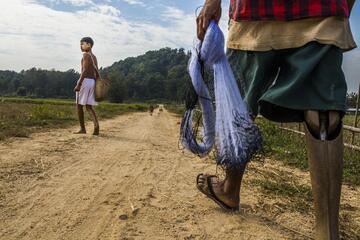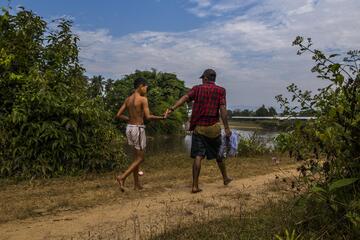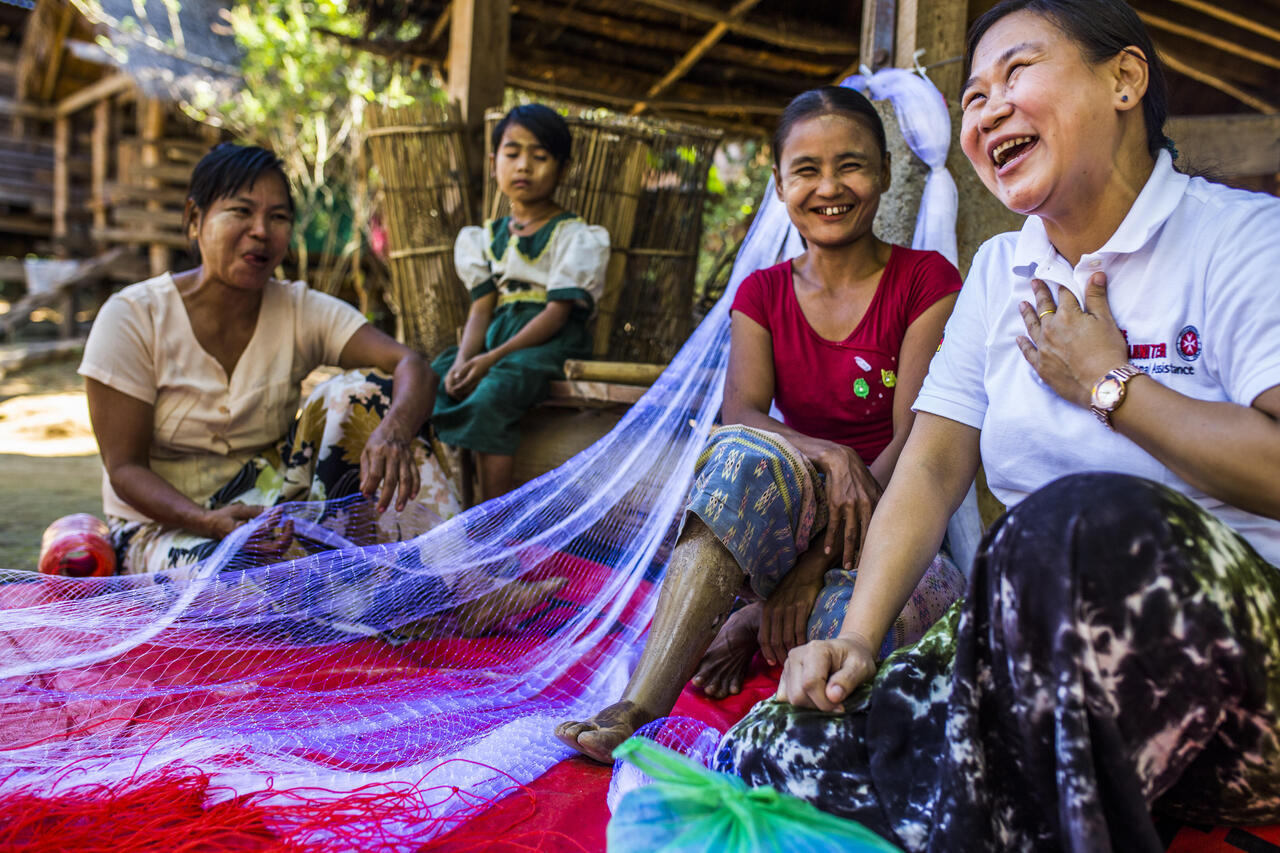People affected by landmines: Facing their fate
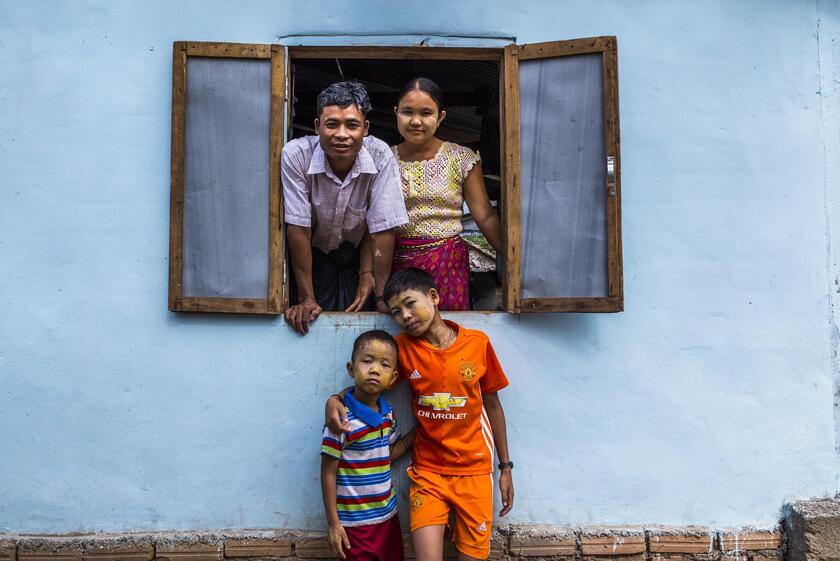
Berlin / Yangon, 03 September 2019
Landmines claim their victims almost daily in Southeast Asian Myanmar. In East Bago, Johanniter is helping the affected people to cope with life afterwards.
37-year-old Ko Min Min was out collecting firewood when he stepped on a landmine. One of tens of thousands hidden in the ground in the East Bago region despite the ceasefire agreed in 2015 between the army and the rebel group Karen National Union. He was in a hospital for weeks, but the doctors were unable to save his left leg and it had to be amputated above the knee. "I asked for a lethal injection," says Ko Min Min telling about his long story of suffering, which represents the fate of many. Every second day a mine or sharp bullet explodes there - one of them changed Ko Min Min's life.
Affected people organise themselves
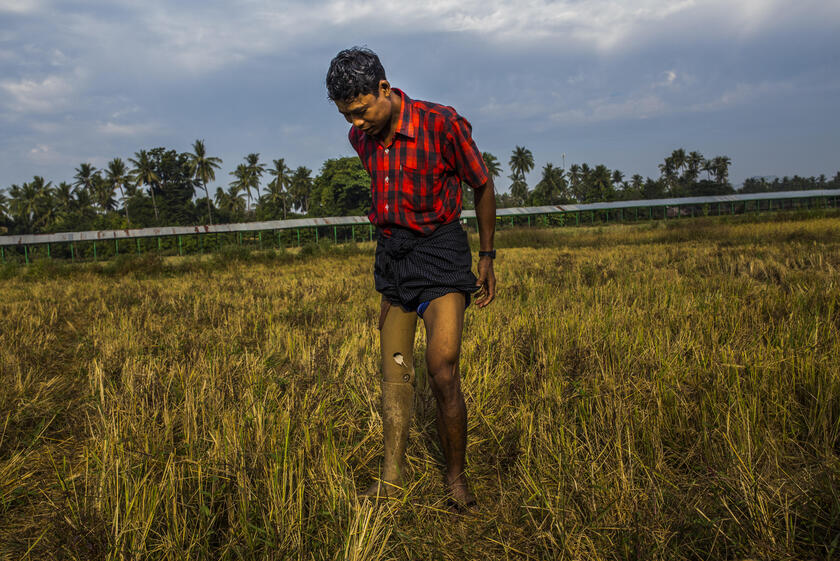
The weapons not only threaten the physical integrity and often the lives of the people in Myanmar, but also the livelihood of the population. Ko had to sell five cows and his entire farmland below value in order to pay for the medical expenses. With great difficulty, he dragged himself for days to a distant hospital to get a prosthesis. He met his depressions with alcohol. "For every mine victim, the first few years are a horror," he says. The father of two children lost almost everything in just a few months.
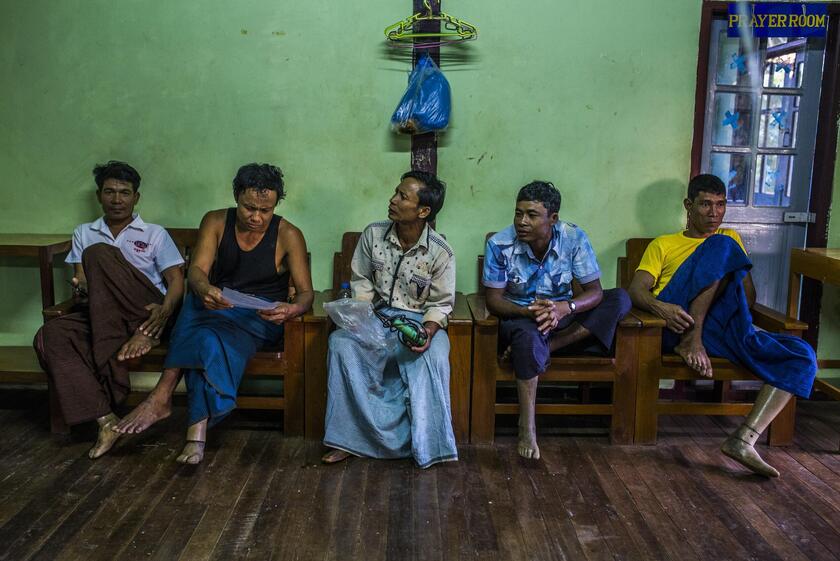
After years of suffering, the turning point came when the local organisation "Karen Development Network" supported the foundation of a self-help group in his village Shwe Pyi Thar. Financed by donations and funds from the Federal Foreign Office, this group is one of a total of 20 in the region where people affected by landmines can organise and meet. They receive assistance through first aid training, information events on the risks of mines and psychosocial support. This helps to heal psychological wounds first and then to support each other in productive projects. In the village they set up a community room where they can meet and work. The head of the group is Ko, who leads the group in his village. "I am responsible for all matters and want to do them well," he says with confidence. People like him are thus successfully empowered to take their lives back into their own hands.
Plans for a second life
Taking responsibility instead of surrendering to fate: This is what the groups and Kos' second life is all about. "We are thinking about a business model and want to open either a grocery shop or a motorbike repair shop," says Ko. To do this, they are looking for support so that they no longer have to rely on outside help. Ko also has his personal situation under control again. He breeds pigs and chickens, his sons accompany him when he goes fishing. But only when they have time off from school: "As long as I live, I will support them in their learning."
